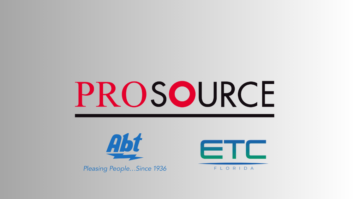Four of the industry’s most influential merchants held forth during a Retail Power Panel, presented during alternate years at International CES here, in which they shared their companies’ views on a host of current and emerging technologies and industry trends.
This year’s frank and far-reaching discussion, moderated by Consumer Electronics Association president/CEO Gary Shapiro, featured Brad Anderson, vice chairman/CEO of Best Buy; Dave Edmondson, president/CEO of RadioShack; Alan McCollough, outgoing chairman/CEO of Circuit City; and Larry Mondry, CEO of CompUSA.
Following a recap of the successful holiday selling season (see TWICE, Jan. 16, p. 1), Shapiro asked the panel to assess several categories as they would a stock with “buy,” “sell” or “hold” ratings. Here’s what the panelists had to say:
VoIP: Three of the retailers, save Anderson, gave this category buy ratings. Expressing caution, Best Buy’s chief executive gave it a hold.
Portable media players: RadioShack’s Edmondson said hold while CompUSA’s Mondry said buy, calling mobile video “a big part of our future.” Circuit City’s McCollough thought the definition was “too broad” to respond, but allowed that the outlook was “mixed” when pressed by Shapiro. Anderson offered a conditional buy on “core brands” only, like iPod or PlayStation Portable (PSP).
Wireless video phones: Edmondson gave this a “strong buy,” while Mondry placed it between hold and sell, asking “Who knows at this point?”
Satellite radio: All four rated this category a strong buy.
HD radio: “Probably buy, with substantial caution,” said Anderson, citing the need to purchase a new and pricey receiver. Mondry agreed, noting “some serious obstacles” that must first be overcome, and the need for “a lot of constituencies” to come together before HD radio achieves critical mass. Edmondson regarded it as a long-term buy.
Custom installation: Anderson called this service “an extreme buy” and described it as an important new cornerstone of Best Buy’s business, given the growing complexity of product interfaces. Mondry agreed, adding that consumers and small businesses need help getting the best use out of their products, and not just in the home. “Even an MP3 player has an installation piece,” he said. McCollough added that the services part of the offering is critical in providing a total solution to customers.
Packaged media vs. streamed content: “You go where the customer interest is, and we will adapt to that,” said Anderson. Packaged media should continue to hold sway for at least the next five years, he said, thanks to a new gaming cycle, the new high-definition DVD formats and new PC software tied to Microsoft’s next-generation operating system, Vista.
McCollough kept all options open. “I access CDs and satellite radio,” he said. “People will do everything and you’ve got to be there to support them.”
Edmondson agreed, adding that consumers will ultimately prefer different devices for different uses. “I’m probably the only anti-convergenist in Las Vegas,” he quipped. “Just because you can put everything on one device doesn’t mean you should. Rather than get people to eat off of a spork, different people will do different things at different times.”
Private label brands and direct sourcing: “The industry rules are changing from a few years ago,” Anderson said. “We’re getting contributions from a thousand different places. There’s no place in the world we could afford not to be aware of. It’s a global industry with shared products. It presents an opportunity to build new brands if you bring the brand promise and the target customer together. We’re looking for new spaces to do so.”
“RadioShack started sourcing in Japan in 1954,” said Edmondson. “It’s important to have a presence in the Far East. Having the right mix of name brand and private label product gives the consumer choice. We use name brands for velocity and house brands for value.”
Said Mondry, “The customer’s a lot more savvy. They no longer buy by brand and they no longer buy their dad’s brand. They get the fact that it’s about quality. There will always be a place for name brands, and name brands will always be highly important. But consumers realize that sometimes they’re all made in the same place, so there’s a lot of acceptance across the board.”
The Internet: “It has produced a much, much more knowledgeable customer,” said Mondry. “They come in now with a small ream of paper. It represents an enormous change in customer behavior and a challenge for the sales staff.”
“The sales guys have to be smarter because the customer is better informed,” Edmondson agreed. “We put broadband into all of our stores for information retrieval rather than information retention.”
“The Internet has helped our sales force dramatically due to the increased complexity of the products,” Anderson added.
“The Internet allows you to reach down to specific markets, so that you can be both broad based and narrow,” McCollough said.
Customer segmentation: “We can customize a particular store to that particular neighborhood,” Edmondson said. “The customer has already segmented our stores. We need to learn how they do it, and lean into it.”
“We can create specific products for specific segments,” added Anderson. “The industry is increasingly diffracting. It puts a large demand on a mass merchant like us.”
Mondry said that “Small business is the biggest segment for CompUSA. Growth is bigger there than on the consumer side. It’s more fragmented, and there’s more opportunity. It’s a major focus for us.”










